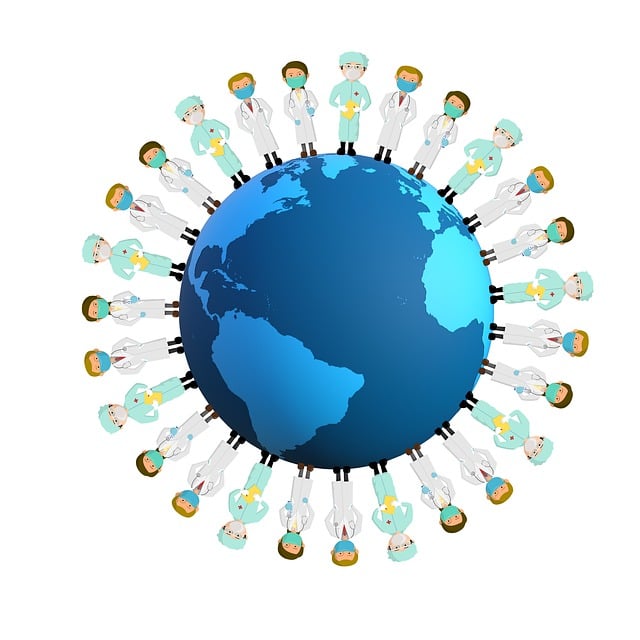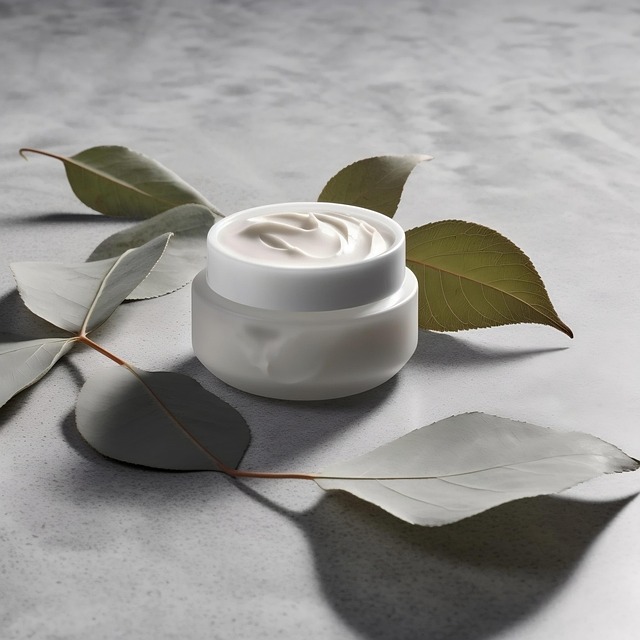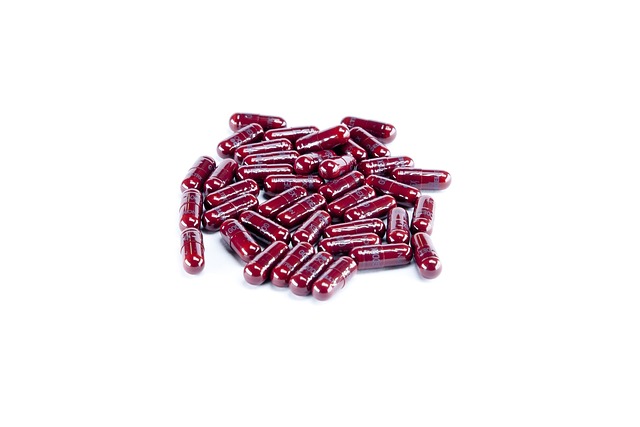PTSD is a debilitating mental health condition arising from traumatic events, impacting daily life. While traditional treatments focus on symptom management, holistic therapies offer a complementary approach addressing mind, body, and spirit. This includes practices like yoga, meditation, acupuncture, art therapy, mindfulness, herbal remedies, and natural supplements. These methods reduce stress, enhance self-awareness, and heal physical and energetic bodies affected by trauma, often overlooked in standard care. Regular practice improves sleep, reduces anxiety, depression, and PTSD symptoms, providing healthier coping mechanisms. Holistic therapies create a nurturing environment for individuals to explore emotions, engage in relaxing activities, build resilience, and regain control over their lives, fostering long-term wellness.
“Discovering holistic therapies for Post-Traumatic Stress Disorder (PTSD) offers a transformative path towards healing. This comprehensive guide explores alternative treatment options, providing a deeper understanding of the mind-body connection in combating PTSD. From mindfulness practices and natural remedies to creative arts and supportive networks, we delve into diverse holistic approaches. By considering these methods alongside traditional treatments, individuals can navigate their recovery journey with enhanced tools for managing symptoms and achieving long-term wellness.”
Understanding PTSD: A Comprehensive Overview

Post-traumatic stress disorder (PTSD) is a complex mental health condition that can affect individuals after they’ve experienced or witnessed a traumatic event. It’s more than just feeling scared or anxious; PTSD can significantly impair daily functioning and quality of life. Symptoms often include recurring intrusive memories, nightmares, avoidance behaviors related to the trauma, negative changes in thoughts and mood, heightened arousal, and intense physical reactions. These symptoms can be debilitating, making it challenging for those affected to cope with their everyday lives.
Understanding PTSD involves recognizing its potential triggers and realizing that it’s not a sign of weakness. It’s a natural response to overwhelming circumstances, and seeking PTSD treatment is crucial for managing the condition effectively. Holistic therapies offer a promising approach by addressing the mind, body, and spirit, aiming to heal the whole person rather than just focusing on symptoms. These therapeutic methods can complement traditional treatments, providing individuals with powerful tools to navigate their trauma journey towards healing and recovery.
Traditional vs Holistic Approaches to Treatment

In addressing Post-Traumatic Stress Disorder (PTSD), there’s a distinct dichotomy between traditional and holistic approaches to treatment. Conventional treatments often focus on symptoms management through therapies like Cognitive Behavioral Therapy (CBT) or Exposure Therapy, which aim to change thoughts and behaviors related to traumatic memories. These methods are evidence-based and effective for many individuals dealing with PTSD. However, they primarily tackle the surface symptoms without necessarily addressing the underlying causes and promoting overall well-being.
Holistic therapies take a different route by considering the individual as a whole—mind, body, and spirit. Techniques such as yoga, meditation, acupuncture, and art therapy focus on reducing stress, enhancing self-awareness, and fostering emotional healing. These methods acknowledge that trauma impacts not just the mind but also the physical and energetic bodies, often overlooked in traditional treatments. By targeting these interconnected aspects, holistic therapies strive to achieve deeper healing and profound changes in one’s life.
The Benefits of Holistic Therapies for PTSD

Holistic therapies offer a nurturing and non-traditional approach to PTSD treatment, focusing on the interconnectedness of mind, body, and spirit. Unlike conventional treatments that often isolate these aspects, holistic methods recognize that trauma affects every part of an individual. By addressing these interconnected elements, holistic therapies help veterans process and overcome their traumatic experiences more effectively.
These therapeutic practices provide a safe space for individuals to explore and express their emotions, engage in relaxing activities, and cultivate self-care habits that promote healing. Studies have shown that holistic PTSD treatment can reduce symptoms of anxiety and depression, improve sleep quality, and enhance overall well-being. Additionally, many veterans find that these therapies empower them with tools to manage stress, build resilience, and regain a sense of control in their lives.
Mindfulness and Meditation Techniques for Recovery

Mindfulness and meditation techniques have emerged as powerful tools in the holistic approach to PTSD treatment. By encouraging individuals to focus on the present moment, these practices help reduce the intensity of traumatic memories and flashbacks. Mindfulness involves cultivating awareness of one’s thoughts, feelings, and bodily sensations without judgment, allowing individuals to observe their experiences rather than becoming overwhelmed by them.
Meditation, on the other hand, promotes relaxation and calmness through focused attention on a specific object, thought, or activity, such as breathing. Regular practice of mindfulness and meditation can enhance emotional regulation, improve sleep quality, and reduce symptoms of anxiety and depression often associated with PTSD. These techniques offer individuals coping mechanisms to navigate their traumatic experiences in a healthier and more constructive manner.
Herbal Remedies and Natural Supplements for PTSD Support

Herbal remedies and natural supplements have gained attention as alternative approaches to support individuals dealing with Post-Traumatic Stress Disorder (PTSD). These options often offer a more holistic path to healing, addressing not only the symptoms but also the underlying root causes. Many herbs and supplements are believed to enhance relaxation, improve sleep quality, and reduce anxiety—common challenges faced by PTSD sufferers. For instance, Valerian root and chamomile tea are popular for their calming effects, promoting better rest and stress reduction.
Some natural supplements, such as omega-3 fatty acids and vitamin B complexes, are known to support brain health and cognitive function. These nutrients play a crucial role in maintaining mental well-being, which is often compromised after traumatic events. Additionally, adaptogenic herbs like rhodiola rosea and ashwagandha are thought to help the body cope with stress, boosting resilience and overall PTSD management.
Yoga, Massage, and Other Body-Mind Practices

Yoga, massage, and other body-mind practices have emerged as powerful tools in the holistic treatment of Post-Traumatic Stress Disorder (PTSD). These therapies focus on the deep connection between the mind and body, aiming to bring about healing by addressing both psychological and physical symptoms. Yoga, for instance, combines physical postures, breathing exercises, and mindfulness to reduce stress, improve sleep, and enhance overall well-being. The gentle stretching and strengthening movements can help alleviate muscle tension often associated with PTSD triggers.
Massage therapy offers another avenue for healing by promoting relaxation, reducing anxiety, and improving circulation. Deep tissue massage can target specific areas of chronic tension, while Swedish or hot stone massages provide a calming experience that soothes the mind and body. These practices encourage individuals to be present in their bodies, fostering a sense of grounding and self-awareness that is often elusive for those suffering from PTSD. By engaging in these holistic therapies, individuals can develop coping mechanisms that support long-term recovery and enhance their overall quality of life.
Art Therapy, Music, and Creative Expression for Healing

Art therapy, music, and creative expression are powerful holistic therapies that can significantly aid in the treatment of PTSD (PTSD treatment). These therapeutic approaches offer individuals a unique and non-verbal means to process trauma and express emotions, often making them more accessible than traditional talk therapy for those who find it challenging to verbalize their experiences. Through art or music, individuals can symbolically represent their inner world, flashbacks, and nightmares, helping to externalize and make sense of difficult memories.
Creative expression allows for a form of catharsis where emotions can be released and repressed traumas can resurface in a controlled environment. This process facilitates healing by providing an outlet for the intense feelings associated with PTSD. Art therapy sessions or musical compositions can offer individuals a sense of control, empowerment, and resilience as they navigate their journey towards recovery. These holistic therapies are valuable tools that complement conventional PTSD treatment methods, addressing the complex nature of trauma and promoting overall well-being.
Building a Holistic Support Network for Long-Term Wellness

Building a holistic support network is an integral part of long-term wellness for individuals dealing with PTSD. This involves surrounding oneself with understanding and compassionate people who can offer various forms of support tailored to the individual’s unique needs. It includes connecting with therapists who practice holistic PTSD treatment, such as those incorporating mindfulness, yoga, or art therapy, alongside traditional talk therapies.
This network also extends beyond professional help. Friends, family, or support groups can play a significant role by providing emotional support, listening without judgment, and encouraging healthy coping mechanisms. Creating this supportive environment encourages individuals with PTSD to rebuild their sense of safety and security, fostering resilience as they navigate their healing journey.
